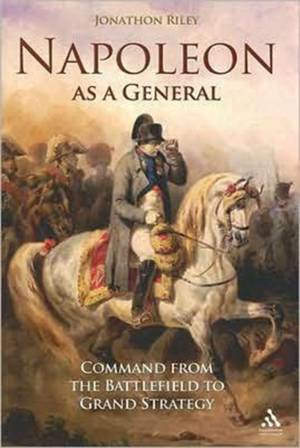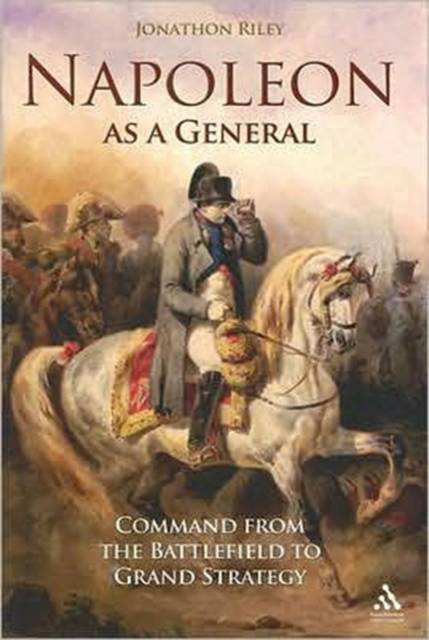
Bedankt voor het vertrouwen het afgelopen jaar! Om jou te bedanken bieden we GRATIS verzending (in België) aan op alles gedurende de hele maand januari.
- Afhalen na 1 uur in een winkel met voorraad
- In januari gratis thuislevering in België
- Ruim aanbod met 7 miljoen producten
Bedankt voor het vertrouwen het afgelopen jaar! Om jou te bedanken bieden we GRATIS verzending (in België) aan op alles gedurende de hele maand januari.
- Afhalen na 1 uur in een winkel met voorraad
- In januari gratis thuislevering in België
- Ruim aanbod met 7 miljoen producten
Zoeken
Napoleon as a General
Command from the Battlefield to Grand Strategy
Jonathon Riley
Hardcover | Engels
€ 145,95
+ 291 punten
Omschrijving
'In war, let your great object be victory, not lengthy campaigns. Thus it may be known that the leader of armies is the arbiter of the people's fate, the man on whom it depends whether the nation shall be in peace or peril...' (Sun Tzu The Art of War). We speak of Caesar who conquered Gaul, not the legions; MacArthur who landed at Inchon, not the Marines - and we speak of Napoleon, one of history's most successful generals. Major General Jonathon Riley is supremely well qualified to write on Napoleon's generalship and has written an informed and insightful account. He opens with a short treatise on generalship in order to define Napoleon's achievement before moving on to the man himself. He examines Napoleon as a strategist; as a coalition commander; Napoleon's campaigns and Napoleon on the battlefield. Areas often ignored in the context of pre-industrial warfare - logistics and counter-insurgency - are also examined. Riley proceeds to three specific case studies beginning with Napoleon's first essay in generalship and the conquest of Piedmont; Napoleon at the height of his powers at the conquest of Prussia, to Napoleon's final defeats and the Battle of the Nations in 1813.
Specificaties
Betrokkenen
- Auteur(s):
- Uitgeverij:
Inhoud
- Aantal bladzijden:
- 240
- Taal:
- Engels
Eigenschappen
- Productcode (EAN):
- 9781847251800
- Verschijningsdatum:
- 1/02/2008
- Uitvoering:
- Hardcover
- Formaat:
- Ongenaaid / garenloos gebonden
- Afmetingen:
- 164 mm x 242 mm
- Gewicht:
- 530 g

Alleen bij Standaard Boekhandel
+ 291 punten op je klantenkaart van Standaard Boekhandel
Beoordelingen
We publiceren alleen reviews die voldoen aan de voorwaarden voor reviews. Bekijk onze voorwaarden voor reviews.









